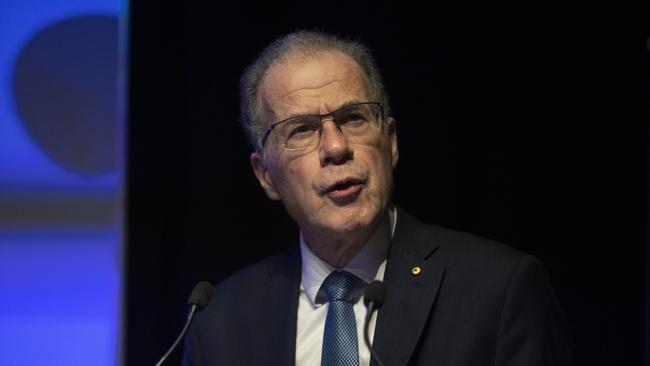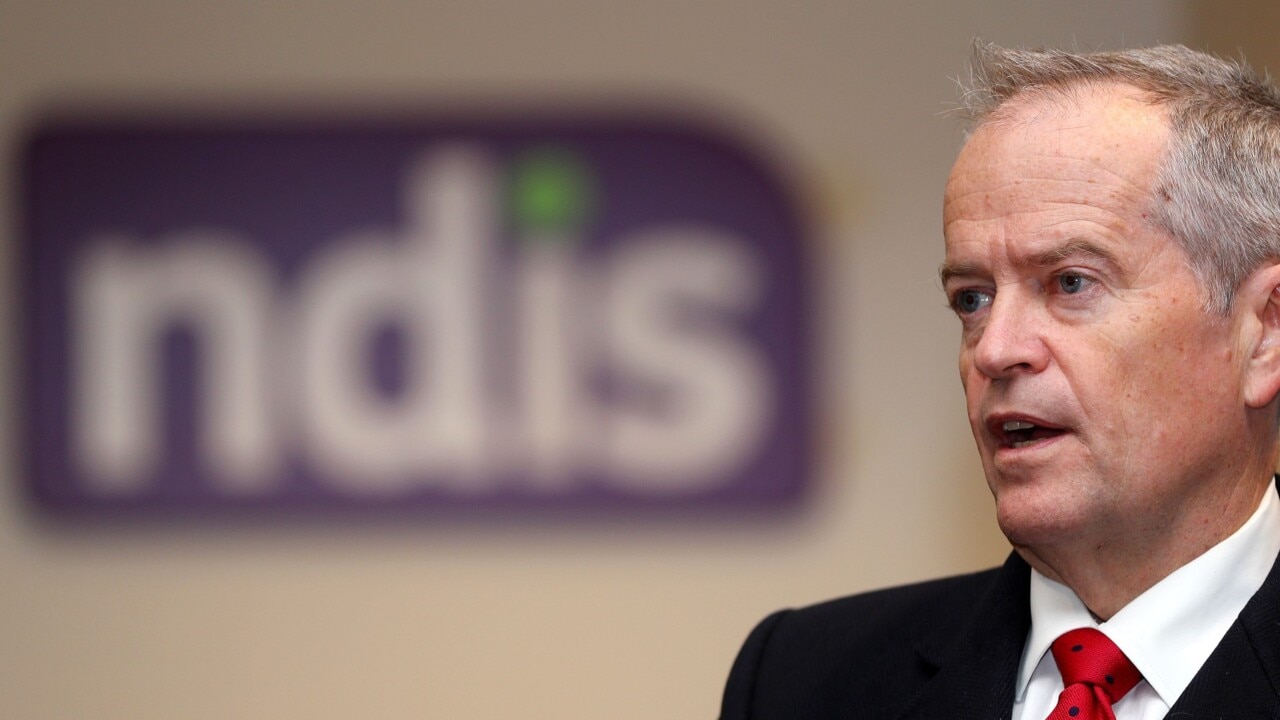NDIS must focus on ‘outcomes, not just providing services’
A key NDIS voice is calling for the scheme to focus spending on delivering outcomes for people with disability, not just services.

NDIS participants with psychosocial disorders are too often receiving help from care workers not trained to support them toward recovery, which is the best outcome for them and overall scheme sustainability, the co-chair of the government’s independent review into the NDIS has warned.
Bruce Bonyhady said the National Disability Insurance Scheme more broadly was not doing enough to incentivise disability services providers to secure better quality-of-life out-comes for participants.
Speaking to The Australian ahead of the release of a new discussion paper on NDIS pricing, the review’s first public commentary on a key element of the $35bn-a-year scheme, Professor Bonyhady said the system was not working efficiently for the 600,000 scheme participants, or for the taxpayer, and needed a greater focus on participant outcomes rather than on simply delivering services.
“A good example is that people who work with scheme participants who have a psychosocial disorder, such as disability support workers who help with daily living and community participation, are often not properly trained in recovery, so they just continue on with existing supports that don’t improve the status quo,” he said.
“Recovery is the best outcome for the participant, but also for the sustainability of the scheme.”
Professor Bonyhady said another example of the NDIS not delivering on outcomes was in helping participants to secure work, a key element of delivering independence to people with disability. “The scheme provides funding to support participants into employment, but again the outcomes have not been as good as we’d have hoped in terms of quality,” he said. “If you want a sustainable scheme, which is what everybody wants, we need to improve people’s independence and, where possible, enable them to do things themselves.”
He said one of the key issues with the NDIS was that its “market has not been structured or managed effectively to deliver the best outcomes for the participant and deliver scheme sustainability”. “There has been too much focus on pure competition, on price caps, and on a one-size-fits-all approach,” Professor Bonyhady said. “There needs to be a much greater focus on the quality of the support provided.”

The review’s new discussion paper on pricing and payments to be released on Thursday notes that prices charged under the existing NDIS price cap for services, including physiotherapy, dietitians and other allied health professionals, are often out of whack with what is charged in the wider market, especially in regional areas.
One submission to the review from an NDIS participant and included in the new pricing paper pointed out what this meant on the ground.
“I try to use mainstream services and products rather than go to the disability-specific market due to the ridiculous prices charged by providers,” they wrote.
“An able-bodied person can go to an allied health professional and be charged $90, but I go for the same service and because I am NDIS-funded, I get charged more than $200.
“Not only is it discriminatory, but also costs the government more dollars, and the person with disability gets less support.”
The release of the review’s discussion paper comes amid a torrid debate on whether the NDIS is delivering value for money for taxpayers in servicing the 600,000 current participants, a number projected to hit more than one million within a decade.
The review, co-chaired by Professor Bonyhady, who was the inaugural chair of the National Disability Insurance Agency, which administers the scheme, and former public servant Lisa Paul, is considering whether the scheme has its eligibility settings right in determining “significant and likely to be permanent” disability.
Part of that debate is the fast-growing numbers of children with diagnoses of autism entering the scheme.
It is also examining whether the “reasonable and necessary” standard for provision of support to NDIS participants is currently delivering for both participants themselves and for the taxpayer.
And it will focus on what services are being delivered, or not delivered, to people with disability who do not qualify for the scheme. These so-called Tier 2 supports, so crucial in the original design of the NDIS, have evaporated, leaving Professor Bonyhady to describe the NDIS as the “oasis in the desert” for those with disability.
But pricing is an immediate concern. The NDIS has faced accusations of price-gouging by providers, some of whom charge multiples of the cost of physical items such as walking sticks and wheelchairs required by participants compared to the open market. There are also allegations of outright fraud.
Some providers and participants are accused of pushing the limits of what is considered “reasonable and necessary” – the definition of supports that are covered by the NDIS – leading to scheme inflation.
The Albanese government has flagged a “reboot” of the NDIS, currently costing $35bn a year and projected to rise to almost $90bn in a decade, to ensure the funding is spent on services for its participants.
It is the government’s third largest spending program, and fastest growing.

With costs rising at 14 per cent, the government has set an 8 per cent growth target from 2026, and has put in place budget measures costing more than $700mto flatten the cost curve. Budget figures project this would reduce projected NDIS spending by $73bn through to 2034.
The new discussion paper on pricing floats policy options such as “outcomes-based” funding rather than funding for activity.
The review is also expected to shortly release a discussion paper on how to better support First Nations and remote-scheme participants.








To join the conversation, please log in. Don't have an account? Register
Join the conversation, you are commenting as Logout